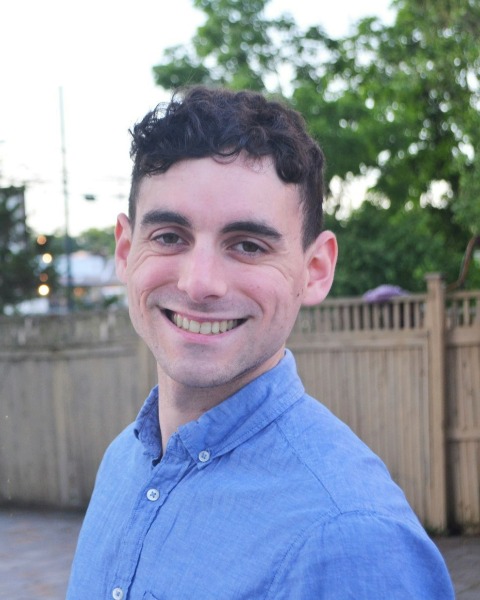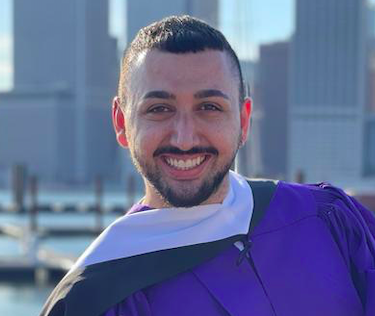LGBTQ+
Symposium 08 - Diverse Pathways to Stigma Resistance among LGBTQ+ Persons: A Strengths-Based Approach to Addressing Mental Health Inequities
Level of Familiarity: Basic to moderate
Recommended Readings: Peel, E., Rivers, I., Tyler, A., Nodin, N., & Perez-Acevedo, C. (2023). Exploring LGBT resilience and moving beyond a deficit-model: Findings from a qualitative study in England. Psychology & Sexuality, 14(1), 114–126. https://doi.org/10.1080/19419899.2022.2063754, Chan, R. C. H., & Mak, W. W. S. (2021). Resistance as a form of resilience in sexual and gender minorities: Differential moderating roles of collective action on the discrimination-depression relationship among sexual minority men and women. Social Science & Medicine (1982), 280, 114056. https://doi.org/10.1016/j.socscimed.2021.114056, Parmenter, J. G., Galliher, R. V., Wong, E., & Perez, D. (2021). An intersectional approach to understanding LGBTQ+ people of color’s access to LGBTQ+ community resilience. Journal of Counseling Psychology, 68(6), 629–641. https://doi.org/10.1037/cou0000578, Barr, S. M., Budge, S. L., & Adelson, J. L. (2016). Transgender community belongingness as a mediator between strength of transgender identity and well-being. Journal of Counseling Psychology, 63(1), 87–97. https://doi.org/10.1037/cou0000127, Diamond, L. M., & Alley, J. (2022). Rethinking minority stress: A social safety perspective on the health effects of stigma in sexually-diverse and gender-diverse populations. Neuroscience and Biobehavioral Reviews, 138, 104720. https://doi.org/10.1016/j.neubiorev.2022.104720
-

Benjamin Shepherd, M.S., M.Ed. (he/him/his)
Nova Southeastern University
Dania Beach, Florida, United States -
SV
Sarah Valentine, Ph.D. (she/her/hers)
Assistant professor
Boston University School of Medicine & Boston Medical Center
Boston, Massachusetts, United States -

Madeleine Miller, B.S. (she/her/hers)
Graduate Student Researcher
Hunter College, City University of New York
Brooklyn, New York, United States -

Benjamin Shepherd, M.S., M.Ed. (he/him/his)
Nova Southeastern University
Dania Beach, Florida, United States -

Murat Hosgor, M.A. (he/they)
PhD Student
Department of Psychology, Fordham University
NYC, New York, United States -
TS
Thomas Schlechter, M.S. (they/them/theirs)
Graduate Student
Colorado State University
Fort Collins, Colorado, United States -
BC
Brenna Carter, M.S. (they/them/theirs)
Colorado State University
Fort Collins, Colorado, United States
Chair(s)
Discussant(s)
Presenter(s)
Discrimination is a key driver of mental health inequities faced by lesbian, gay, bisexual, transgender, and queer (LGBTQ+) communities (Diamond & Alley, 2022; Meyer, 2003). Discrimination threatens basic human needs for social safety (i.e., reliable social connection, inclusion, belonging, recognition, and protection) and may result in cognitive, affective, and behavioral responses that adversely affect mental health. Historically, psychological research has contributed to the oppression of LGBTQ+ people by pathologizing identities outside of traditional gender roles (e.g., conversion therapy; Mallory, 2019). Emerging research highlights the importance of recognizing, understanding, and harnessing the unique strengths and identity intersections of diverse communities in research and clinical practice (Chan & Mak, 2021). This perspective is necessary to prevent deficit-based, single-identity understandings (or misunderstandings) of such disparities (Kler et al., 2023; Peel et al., 2023). A strength-based, intersectional approach may help researchers and clinicians more effectively address persistent mental health inequities affecting this population by recognizing and leveraging the strength, resilience, and strategies communities have built in opposition to chronic discrimination. In line with the convention theme of “Inspiring Community Engagement, Advocacy, and Innovation to Advance CBT,” this symposium will include a total of five presentations aimed at promoting a community-focused approach to cognitive-behavioral practice and science. Using a community engaged dissemination and implementation (CEDI) approach, the first presenter will discuss how group processes facilitated the effective implementation of an empowerment self-defense (ESD) group and promoted collective healing among transgender women. The second presenter will examine community-specific belonging, general belonging, and indicators of status that transcend gay/bi+ and heterosexual communities as interrelated stress buffers in the context of intersecting systems of oppression. The third presenter will examine community connectedness and coping self-efficacy as potential protective factors that weaken the association between intraminority stress and substance use among gay and bi+ men. The fourth presenter will examine political action as a potential resilience/meaning making tool. The last presenter will present psychometric evidence for a novel LGBTQ+ resource measure they designed as a roadmap for researchers, clinicians, and other agents of change. In sum, this symposium will highlight a diversity of strategies utilized by LGBTQ+ communities to not only cope with, but also actively resist, identity-based stigmas to mitigate discrimination-driven mental health risks (i.e., stigma resistance). The discussant is an expert in the field of implementation science, minority stress, and mental health with a specific focus on improving access and quality of care gaps for post-traumatic stress disorder among minoritized groups. The discussant will provide a broader context for understanding the findings from each presentation and discuss ways to apply them toward improving the mental health of LGBTQ+ persons.
Learning Objectives:
- Explain the difference between the terms coping, resilience, and “stigma resistance” and their utility in research and clinical practice.
- Identify general and identity-specific protective factors relevant to the mental health of LGBTQ+ persons.
- Describe a variety of individual- and community-level strategies utilized by marginalized individuals to preserve and enhance well-being.
- Apply knowledge about specific stigma resistance faciliators and obstacles in clinical practice to foster resilience in LGBTQ+ clients.
- Recognize the importance of utilizing strengths-based, culturally attuned approaches to address stigma-driven mental health disparities.
Presentations:
-
8:30 AM - 10:00 AM EST(SYM 8) A Strength-based Approach to Addressing Health Disparities Among Transgender Women: Isolating Group Level Therapeutic Principles Within a Community Program
Speaker: Madeleine Miller, B.S. (she/her/hers) – Hunter College, City University of New York
Co-Author: Danielle Shea Berke, Ph.D. (she/her/hers) – Hunter College, City University of New York
-
8:30 AM - 10:00 AM EST(SYM 8) A Strengths-based, Intersectional Analysis of General Belongingness and Status as Moderators of the Association Between Community-specific Belongingness and Perceived Stress Among Gay and Bi+ Men
Speaker: Benjamin F. Shepherd, M.S., M.Ed. (he/him/his) – Nova Southeastern University
Co-author: Roberto López Jr., Ph.D. (he/him/his) – Department of Psychiatry and Biobehavioral Sciences, University of California, Los Angeles
Co-author: Janell Mensinger, Ph.D. (she/her/hers) – Department of Clinical and School Psychology, Nova Southeastern University
Co-author: Paula M. Brochu, Ph.D. – Nova Southeastern University
-
8:30 AM - 10:00 AM EST(SYM 8) The Association of Intraminority Stress with Alcohol and Substance Use Among Sexual Minority Men: Protective/moderating Role of Community Connectedness and Coping Self-efficacy
Speaker: Murat Hosgor, M.A. (he/they) – Department of Psychology, Fordham University
Co-author: Julia K. Nicholas, M.S. – University of Louisville
Co-author: Dominic M. Denning, B.A. (he/him/his) – University of Massachusetts Amherst
Co-author: Tiffany Brown, Ph.D. (she/her/hers) – Auburn University
-
8:30 AM - 10:00 AM EST(SYM 8) Investigating Meaning-making as a Potential Tool for Transgender and Gender Expansive Communities
Speaker: Thomas E. Schlechter, M.S. (they/them/theirs) – Colorado State University
-
8:30 AM - 10:00 AM EST(SYM 8) An Initial Exploration of Latent Factor Structures in the LGBTQ+ Resource Accessibility Scale
Speaker: Brenna A. Carter, M.S. (they/them/theirs) – Colorado State University

.png)
